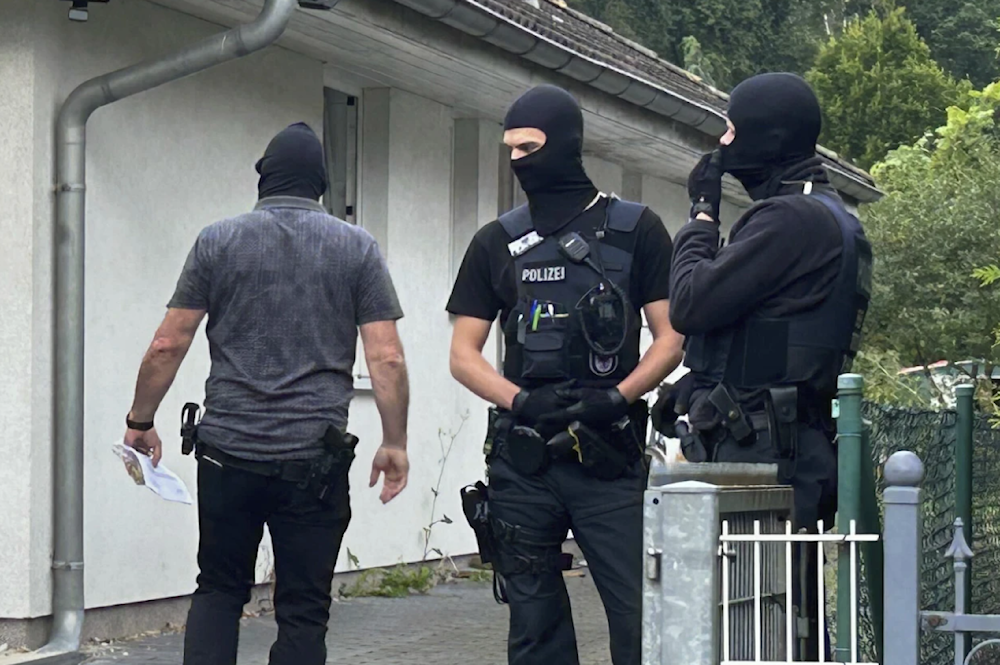Workers jobless, assets seized amid far-right German magazine ban
Compact's lawyer Markus Beisicht says the magazine intended to challenge the Interior Ministry's decision to ban the magazine.
-

Masked police officers stand in front of a house in Falkensee near Berlin, Germany on July 16, 2024. (AP)
All workers of the banned German right-wing magazine Compact have lost their employment, and the publication's assets have been seized, Compact's lawyer Markus Beisicht revealed.
Beisicht stated in response to a request from RIA Novosti that "all the magazine's employees have lost their jobs. All of Compact's property has been confiscated. The websites are blocked."
He stated that no one had been detained or prosecuted in connection with the magazine's shutdown, which German Interior Minister Nancy Faeser carried out using the law on associations.
"[Compact's editor-in-chief ] Juergen Elsaesser was not arrested. His 'economic existence' was simply destroyed," the lawyer explained.
Beisicht stated that the magazine intends to challenge the Interior Ministry's decision, citing that the ban "can be contested," vowing to address the issue. "If the rule of law still exists, the lawsuit should have a good chance," he noted.
On Tuesday, Faeser said that the magazine and its subsidiary, Conspect Film, had been shut down for acting as a "central mouthpiece of the right-wing extremist scene" and inciting hatred against Jews, migrants, and parliamentary democracy. Searches were carried out in facilities associated with the publication in the federal states of Brandenburg, Hesse, Saxony, and Saxony-Anhalt.
On July 13, the magazine included an interview with Russian Foreign Ministry spokesperson Maria Zakharova, who subsequently said the closure was due to her disclosing "the truth being carefully hidden from Germans."
Compact has been publishing a circulation of 40,000 copies and has a website and a YouTube channel thought to be affiliated with the Alternative for Germany party and other European right-wing organizations.
In late June, clashes took place between protesters and police in Germany after Germany's AfD reaffirmed its desire to ascend to power.
Approximately 1,000 police officers were deployed in the western city of Essen, where demonstrators reported 50,000 people marched toward the congress.
Tino Chrupalla, co-president of the Alternative for Germany (AfD), told about 600 delegates attending the two-day gathering, "We want to govern, first in the east (of Germany), then in the west, then at federal level."
In the recent European Parliament elections in Germany, the AfD secured a notable second-place position, marking a substantial improvement from its 2019 performance.
The party advocates for stricter immigration controls and seeks a peaceful resolution to the conflict in Ukraine, among other policy objectives.

 3 Min Read
3 Min Read








